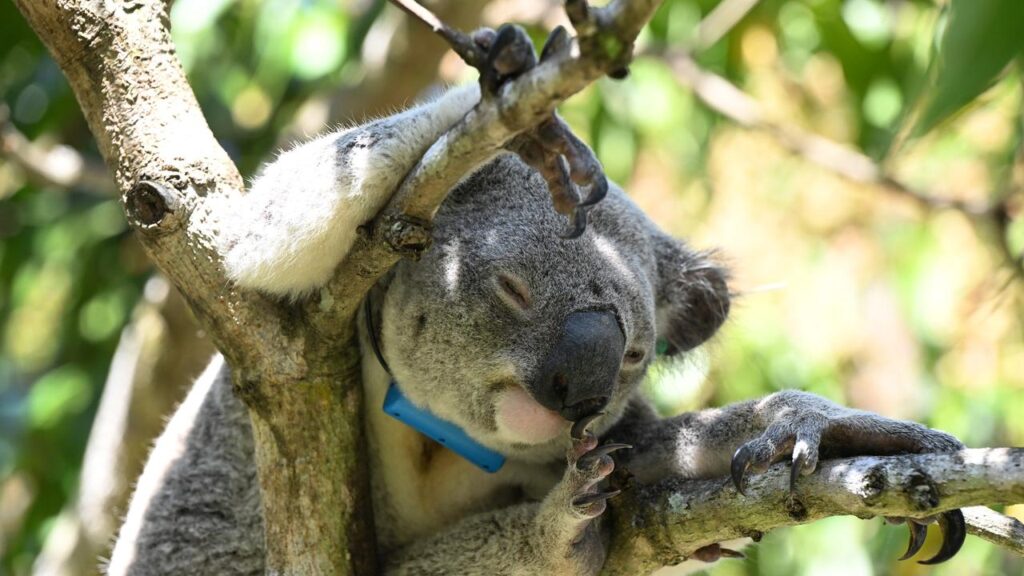Koala vaccine hailed but rollout cost too much to bear
Andrew Stafford |

A proposed rollout of a world-first chlamydia vaccine for koalas could cost “squillions and squillions”, wildlife advocates warn.
University of the Sunshine Coast researchers have spent more than a decade developing the breakthrough, single-use vaccine which they hope to launch in 2026.
The Australian Koala Foundation has queried the vaccine rollout’s likely effectiveness.
Foundation chair Deborah Tabart claimed any suggestion that governments fund vaccinations for wild koalas “can only be mocked”, saying the task would be effectively impossible.
“It would cost squillions and squillions,” she told AAP.
It might be impossible to vaccinate enough koalas in wild populations to ensure a sufficient level of immunity, Ms Tabart said.
“It was almost impossible to vaccinate almost all humans for COVID.”
Researchers have hailed the vaccine for chlamydia, one of the main threats to koala populations.

Ms Tabart said the celebration of the vaccine dragged attention away from the core issue of habitat destruction and flow-on threats to koalas, including vehicle strikes and dog attacks.
The Queensland Conservation Council agreed, but was more upbeat about the vaccine’s potential.
“It’s really good news. Chlamydia is one of the key stresses that has been putting pressure on koala populations,” council director Dave Copeman said.
“Koalas were at risk before chlamydia outbreaks, and they will remain at risk even if we manage chlamydia perfectly, because we keep on destroying their habitat.
“It’s not the silver bullet.”

The vaccine has been approved by the national regulator, the Australian Pesticides and Veterinary Medical Authority, and is set for an early 2026 rollout with plans to take it nationwide.
“Chlamydial disease affects 50 per cent or more of all koala populations, so we need a new tool,” said Professor Peter Timms, from the university’s Centre for Bioinnovation.
Chlamydia for koalas can lead to blindness, pneumonia, urinary and reproductive tract infections, infertility and death.
Koala populations using the vaccine over a 10-year period had shown reduced rates of disease and improved health outcomes, particularly for animals of breeding age, Prof Timms said.

He said the vaccine rollout would start with koalas in wildlife hospitals before progressing to wild populations.
Prof Timms said there was evidence koalas became more vulnerable to chlamydia outbreaks because of long-term stress caused by habitat loss, bushfires and drought.
“We have got examples in places like northern NSW where chlamydia infection levels have gone from very low to nearly 80 (per cent),” he said.
While increased rates of chlamydial disease were related to fragmentation of koala populations due to land clearing, Prof Timms said habitat loss remained the greatest threat to the koala’s survival overall.

“If you haven’t got a tree, nothing much else matters,” he said.
Prof Timms said the development of the vaccine had the potential to help in the fight against chlamydia in humans.
The World Health Organisation estimated that in 2020, there were more than 128 million new infections among people aged 15-49 globally.
“The rest of the world is interested in what we’re doing in the koala space, so there’s lessons to be learned from a koala vaccine that could be translated across to vaccines in humans as well,” Prof Timms said.
AAP